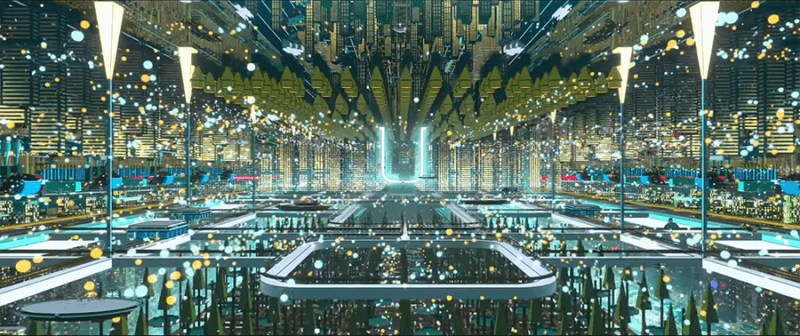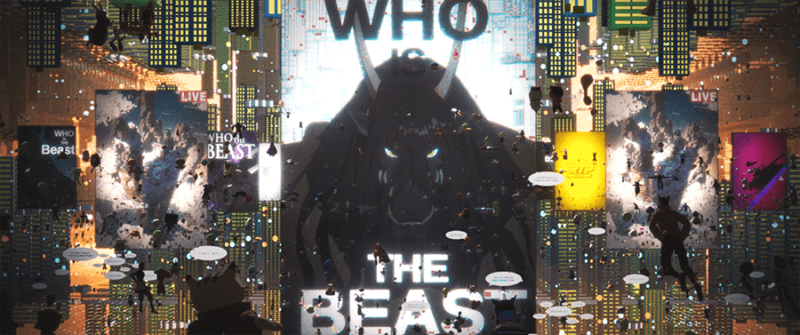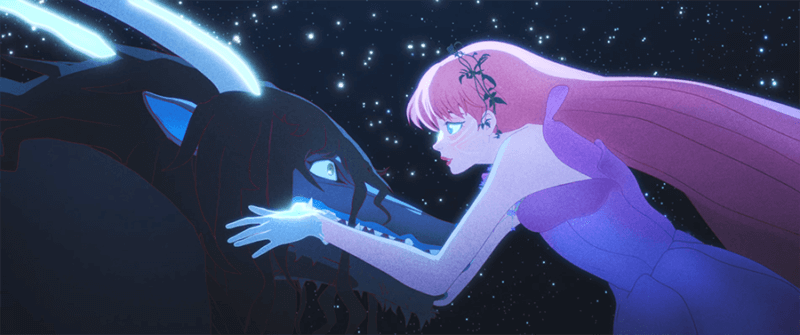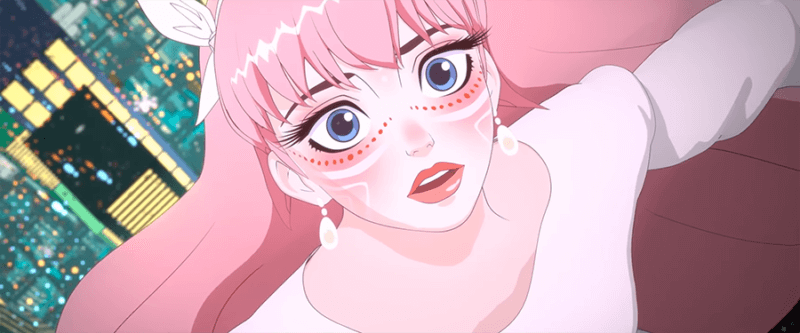Review: Mamoru Hosoda’s ‘Belle’ – An Ambitious, Big-hearted Production Makes it an Experience Worth Having
Belle, Mamoru Hosoda’s seventh feature film, was released at the perfect time. With the Metaverse looming over the horizon, the concept of virtual reality on the Internet is more relevant now than it was when Hosoda tackled it in his acclaimed Summer Wars (2008). Instead of the Metaverse, Belle offers the dreamlike world of U, a virtual world that gives its users the chance to recreate themselves – “you can’t start over in reality, but you can start over in U”.

After the death of her mother, Suzu has withdrawn into herself, growing distanced from her father and losing her singing voice. But she re-discovers her voice in U, singing as Belle, her pop diva alter-ego with millions of adoring fans. But when her concert is crashed by a violent avatar called the Beast, she becomes engrossed in finding out his real identity, whilst trying to protect him from the Justices, a group of self-appointed moderators with the power to unveil an avatar’s true identity.

Belle is a dense movie. The beauty and the beast fairytale, the film’s gimmick, is really one of many spinning narrative plates. There is a lot of story to digest here, a lot of which is very good, but is sometimes weighed down by the film’s own ambition. Strangely, U feels underdeveloped. Eric Wang’s gorgeous architectural designs tease a fluid space – part science, part fantasy – that users can manipulate to their whims. Personally, I wanted to see more concerts that took advantage of U’s malleability, a little like Koji Morimoto’s famous concert scene in Macross Plus (1994). What we do see of U is heavily filtered through the relationship between Bell and the Beast, a dynamic that is over-sentimental and distractingly derivative of the Disney film. It’s not bad per se – Hosoda’s writing, ever-ambitious, eventually drags that plotline above cliche into something genuinely compelling. But it takes a while to get there.

Ironically, Belle shines not in the virtual world, but in the physical world, as Suzu navigates her relationships with the people in her community whilst trying to make sense of her mother’s death. Kaho Nakamura is a revelation as Suzu. Her skill as a singer allows her to bring a dimension of physicality to her performance – you feel Suzu’s physical pain when she tries to sing for the first time. And Suzu’s relationships with her classmates and her mother’s friends, whilst far from unique, have a wonderful energy and bring levity to a story that takes some dark turns. The music and animation are stunning – this is the movie’s real draw, as it realises its worlds with lavish art-direction and a rich soundscape. Bell is one of the most beautiful characters ever put to screen, and her design alone touches on the indulgent, wish-fulfilment potential of U, and virtual, online spaces everywhere. And whenever she sings, which isn’t often enough, Nakamura absolutely blows it out of the park. I hope this isn’t the last time we see her in animation.

When the last third arrives, the plot crumples under the weight of the contrivances it uses to connect all the thematic dots. But even then, Hosoda’s direction finds points of genuine emotional resonance that keep the film from veering too far off the rails. This sums up Belle quite well – a movie of good bits that never quite add up to a complete picture. But the parts that work are phenomenal. While the story never consistently reaches the heights of the animation and music, Belle’s ambitious, big-hearted production makes it an experience worth having.
Belle is now showing in cinemas across the UK.

